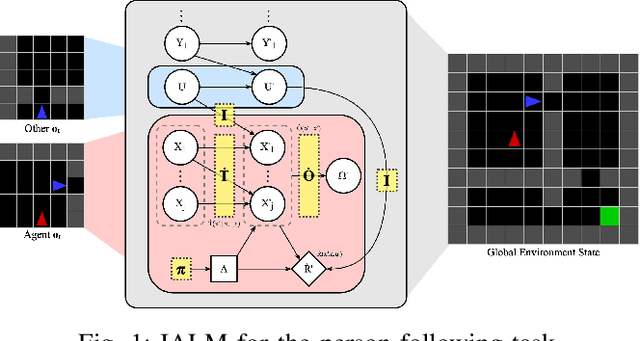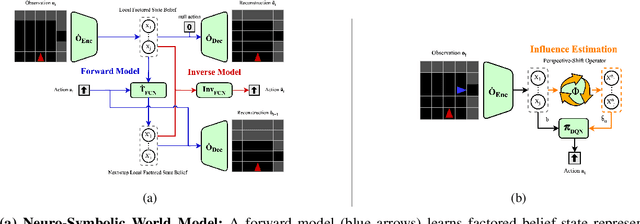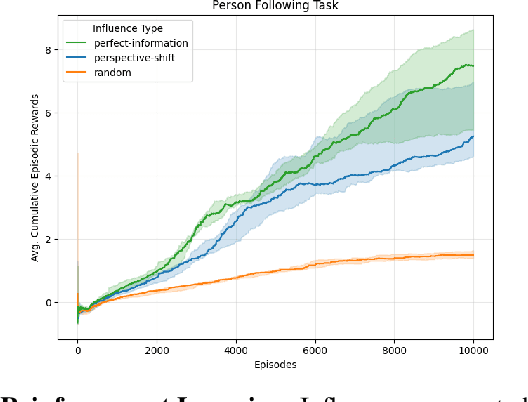Perspective-Shifted Neuro-Symbolic World Models: A Framework for Socially-Aware Robot Navigation
Paper and Code
Mar 26, 2025



Navigating in environments alongside humans requires agents to reason under uncertainty and account for the beliefs and intentions of those around them. Under a sequential decision-making framework, egocentric navigation can naturally be represented as a Markov Decision Process (MDP). However, social navigation additionally requires reasoning about the hidden beliefs of others, inherently leading to a Partially Observable Markov Decision Process (POMDP), where agents lack direct access to others' mental states. Inspired by Theory of Mind and Epistemic Planning, we propose (1) a neuro-symbolic model-based reinforcement learning architecture for social navigation, addressing the challenge of belief tracking in partially observable environments; and (2) a perspective-shift operator for belief estimation, leveraging recent work on Influence-based Abstractions (IBA) in structured multi-agent settings.
 Add to Chrome
Add to Chrome Add to Firefox
Add to Firefox Add to Edge
Add to Edge